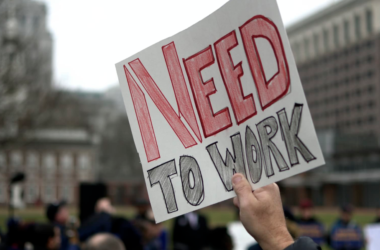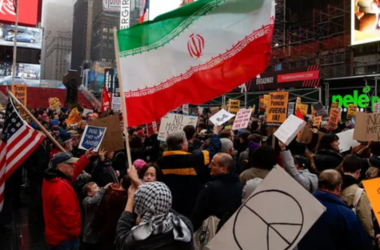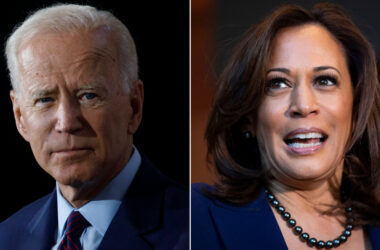Vice President Kamala Harris’s recent rally in Atlanta has injected a noticeable surge of energy into the Democratic base, but the key question remains: How long can this momentum be sustained? While Democrats are celebrating what appears to be a reinvigorated campaign, Republicans are skeptical about whether this newfound enthusiasm will translate into lasting support.
The Harris campaign has clearly shifted gears, with massive crowds, celebrity endorsements, and a noticeable shift away from President Joe Biden’s messaging. On Tuesday night, Harris took the stage in front of an electrified crowd, presenting herself as the new face of the Democratic Party. Her remarks, notably lacking any mention of Biden, signaled a clear departure from the president’s more moderate tone. Instead, Harris embraced a message focused on the future, asserting that “the momentum in this race is shifting” and hinting that former President Donald Trump is feeling the pressure.
However, Republicans are questioning whether this “Harris honeymoon” can endure. The burst of excitement within the Democratic ranks, driven by Harris’s elevation to the top of the ticket, might be just that—short-lived excitement. GOP pollster Neil Newhouse encapsulated this sentiment by asking, “How long does the honeymoon last? Who knows.”
Republicans are also quick to point out that Harris’s campaign, despite the buzz, still has many unanswered questions. Harris inherited Biden’s re-election apparatus, but her plans to reshape it are not fully clear. Moreover, she has yet to outline her own vision for the party or select a running mate, decisions that will be crucial as the campaign progresses.
The timing of this shift in leadership is unprecedented, compressing a process that typically unfolds over months into just a few weeks. This condensed timeline adds a layer of unpredictability to the race, leaving open the possibility that Harris’s support could either solidify or collapse before Election Day.
Harris’s pivot to a more aggressive campaign style also raises concerns among Republicans. By distancing herself from Biden’s message of restoring the “soul of the nation,” and instead positioning the campaign as a battle for the future, Harris risks alienating moderate voters who were key to the Biden-Harris victory in 2020.
Moreover, while the Harris campaign is basking in the glow of record-breaking fundraising and positive poll numbers, Republicans are preparing to leverage the same issues that have driven Trump’s campaign—economic discontent, border security, housing costs, and crime. The GOP believes that these concerns will resonate with voters more than Harris’s new branding as a cultural phenomenon.
Despite the current wave of enthusiasm, Republicans are confident that the fundamental dynamics of the race have not changed. Harris may be enjoying her moment in the spotlight, but as the campaign progresses, the real test will be whether she can maintain this momentum or if it will fizzle out as voters begin to scrutinize her policies more closely.
As the race unfolds, both parties are bracing for a fierce contest in a political environment that remains as polarized as ever. For now, Harris may have the spotlight, but Republicans are banking on the issues that have traditionally driven voter behavior to ultimately decide the outcome.








